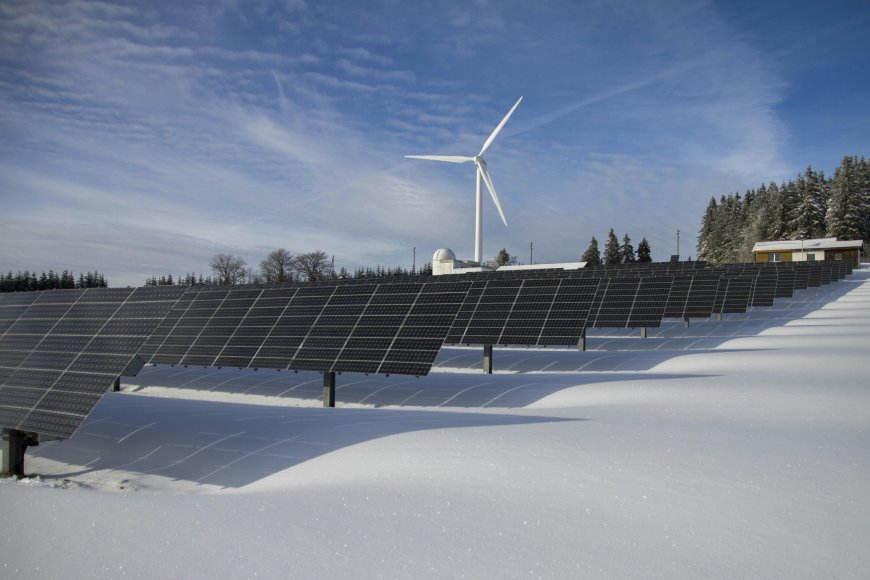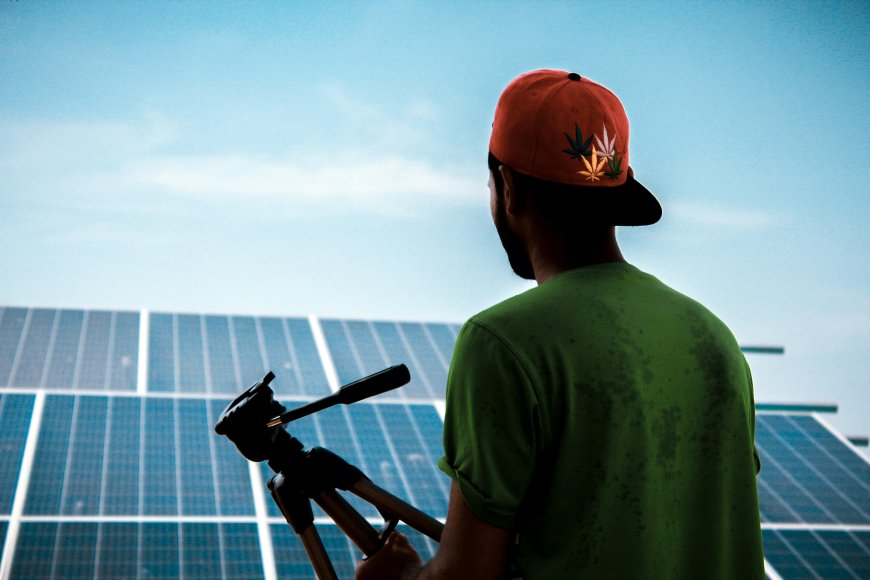Trump Blocks Approval of Wind and Solar Projects
Trump declares the U.S. will not approve new solar or wind power projects, sparking fears for renewable energy’s future.

In a striking declaration that has sent ripples through the global energy sector, former President Donald Trump announced that the United States will not approve new wind or solar power projects. The statement, coupled with tightened federal permitting rules, marks one of the most direct rebukes yet to the renewable energy industry.
For renewable developers who had grown accustomed to navigating long but predictable approval processes, the message was blunt: the federal government is shutting its doors. Companies now fear that projects once considered routine may never see the light of day.
The move represents a sharp reversal for an industry that, until recently, was hailed as central to America’s energy transition. It also raises profound questions about the future of U.S. climate policy, global investment, and the millions of workers whose livelihoods are tied to clean energy.
Trump’s declaration: no new wind or solar
Speaking at a rally, Trump was unequivocal: “The United States will not approve wind or solar power projects.” His administration reinforced the stance by shifting final permitting authority to Interior Secretary Doug Burgum, ensuring that renewable proposals face the most restrictive federal oversight in decades.
Industry insiders describe the change as more than symbolic. It signals a systematic freeze on the development pipeline, effectively cutting off federal approval for large-scale solar farms, offshore wind arrays, and transmission projects that require government clearance.
How permitting rules are tightening
The Interior Department, historically responsible for balancing energy development with environmental protection, has now become the bottleneck for renewable projects. With Burgum’s office holding the final say, developers fear approvals that once took months could now be stalled indefinitely.
Key changes include:
- Final approval centralized under the Interior Secretary, removing regional discretion.
- Stricter land-use reviews that emphasize potential visual and environmental impacts.
- Fossil-friendly exemptions, with oil and gas leasing facing fewer hurdles than renewables.
For renewable firms, the implications are stark. “We’re not just looking at delays,” said one solar executive. “We’re looking at an outright stop.”
The economic stakes for renewable energy
The U.S. clean energy sector has grown rapidly over the past decade, buoyed by falling technology costs, state-level incentives, and federal support. According to industry data, renewables now employ more than three million Americans, outpacing coal, oil, and gas combined in workforce size.
Trump’s declaration puts that growth at risk. Without new project approvals:
- Thousands of jobs tied to solar and wind construction could evaporate.
- Investment pipelines, often worth billions, may shift overseas to markets with friendlier policies.
- Grid modernization, which depends on large-scale renewable integration, could stall, leaving U.S. infrastructure lagging behind.
For global investors, the U.S. suddenly looks like a less reliable partner in the clean energy transition, potentially ceding leadership to Europe and Asia.
Storytelling: a community caught in the middle
In a small coastal town in New England, residents had been preparing for the arrival of an offshore wind project promised to deliver clean power and hundreds of local jobs. Fishermen were negotiating new routes, construction workers were training for turbine installation, and the local high school had even launched a renewable energy curriculum.
Now, uncertainty looms. “We were told this was our future,” says Maria Lopez, a mother of two whose husband was preparing to join the project. “Then overnight, it feels like it’s all been taken away. How do we tell our kids there are no jobs after all?”
Her story underscores the human side of energy policy—decisions in Washington reverberating through households, classrooms, and communities far from the political stage.
Fossil fuels versus renewables: a familiar divide
Trump has long been a vocal critic of renewable energy. He has dismissed wind turbines as “ugly” and claimed they harm wildlife, while championing fossil fuel industries as vital to U.S. strength.
The latest move cements that philosophy into policy. While renewables face mounting restrictions, oil and gas companies continue to benefit from streamlined approvals and expanded drilling leases.
This dual-track approach reflects a broader ideological divide: one vision sees fossil fuels as America’s enduring backbone, the other sees renewables as the pathway to resilience and independence in a warming world.
Reactions from the renewable industry
The announcement has drawn swift condemnation from renewable advocates. Trade groups warn that the decision undermines not only climate goals but also U.S. competitiveness.
- Solar companies warn of stalled projects in sun-rich states like Arizona, Texas, and Nevada.
- Wind developers highlight billions in investment now at risk along the Atlantic coast and Midwest plains.
- Environmental groups argue the policy is a setback for emissions reduction targets, leaving the U.S. vulnerable to worsening climate impacts.
One industry spokesperson put it bluntly: “This is not just an attack on renewables. It’s an attack on jobs, innovation, and America’s future.”

Political and global implications
The decision has political overtones, positioning Trump as a defender of traditional energy against what he frames as costly and unreliable alternatives. Among his supporters, the move reinforces a message of protecting American jobs in fossil fuel states.
Internationally, the reaction is more complicated. Allies in Europe, already accelerating their renewable rollouts, may interpret the U.S. retreat as a leadership vacuum. Competitors like China, the world’s largest producer of solar panels and wind turbines, could seize the opportunity to expand their dominance in global markets.
The policy may also complicate climate negotiations, weakening America’s bargaining power at a time when collective action is seen as urgent.
What happens next for U.S. energy policy
While federal permitting is now frozen, the future of renewables in America is not entirely shut. Several factors could shape the path forward:
- State-level momentum: States like California, New York, and Massachusetts continue to push aggressive clean energy mandates.
- Corporate demand: Major companies are pledging to source 100% renewable power, keeping pressure on suppliers.
- Legal challenges: Renewable firms are likely to contest federal restrictions in court, arguing they unfairly discriminate against one sector.
Still, the near-term outlook is one of uncertainty. For developers with projects on the drawing board, the question is no longer “when” but “if” their plans will move forward.
Conclusion: a pivotal moment for America’s energy future
Trump’s declaration that the U.S. will not approve new solar or wind projects marks a decisive turning point in the nation’s energy debate. For renewable advocates, it represents a major setback—threatening jobs, investment, and America’s role in the global clean energy transition.
For supporters, it reaffirms a commitment to fossil fuels and a rejection of what they see as unreliable, government-subsidized industries.
Yet one thing is clear: the decision is not just about kilowatts or permits. It is about communities waiting for jobs, investors weighing risks, and a world looking to America for leadership. The question now is whether the country will double down on its fossil fuel past—or find a way back to its renewable future.
FAQs
1. What exactly did Trump announce about renewables?
He said the U.S. will not approve new wind or solar power projects, centralizing federal permitting authority under the Interior Secretary.
2. How does this affect renewable companies?
Developers fear projects that once received routine approvals will now be blocked, threatening jobs and investment.
3. Does this mean all renewable projects are stopped?
Federal approvals are restricted, but state-led projects and private corporate initiatives may still proceed.
4. Why does this policy favor fossil fuels?
Oil and gas projects continue to receive faster approvals, creating an uneven playing field compared with renewables.
5. What are the global implications of the decision?
It could reduce U.S. competitiveness in clean energy, strengthen China’s dominance, and undermine international climate commitments.
What's Your Reaction?
 Like
0
Like
0
 Dislike
0
Dislike
0
 Love
0
Love
0
 Funny
0
Funny
0
 Angry
0
Angry
0
 Sad
0
Sad
0
 Wow
0
Wow
0
































































